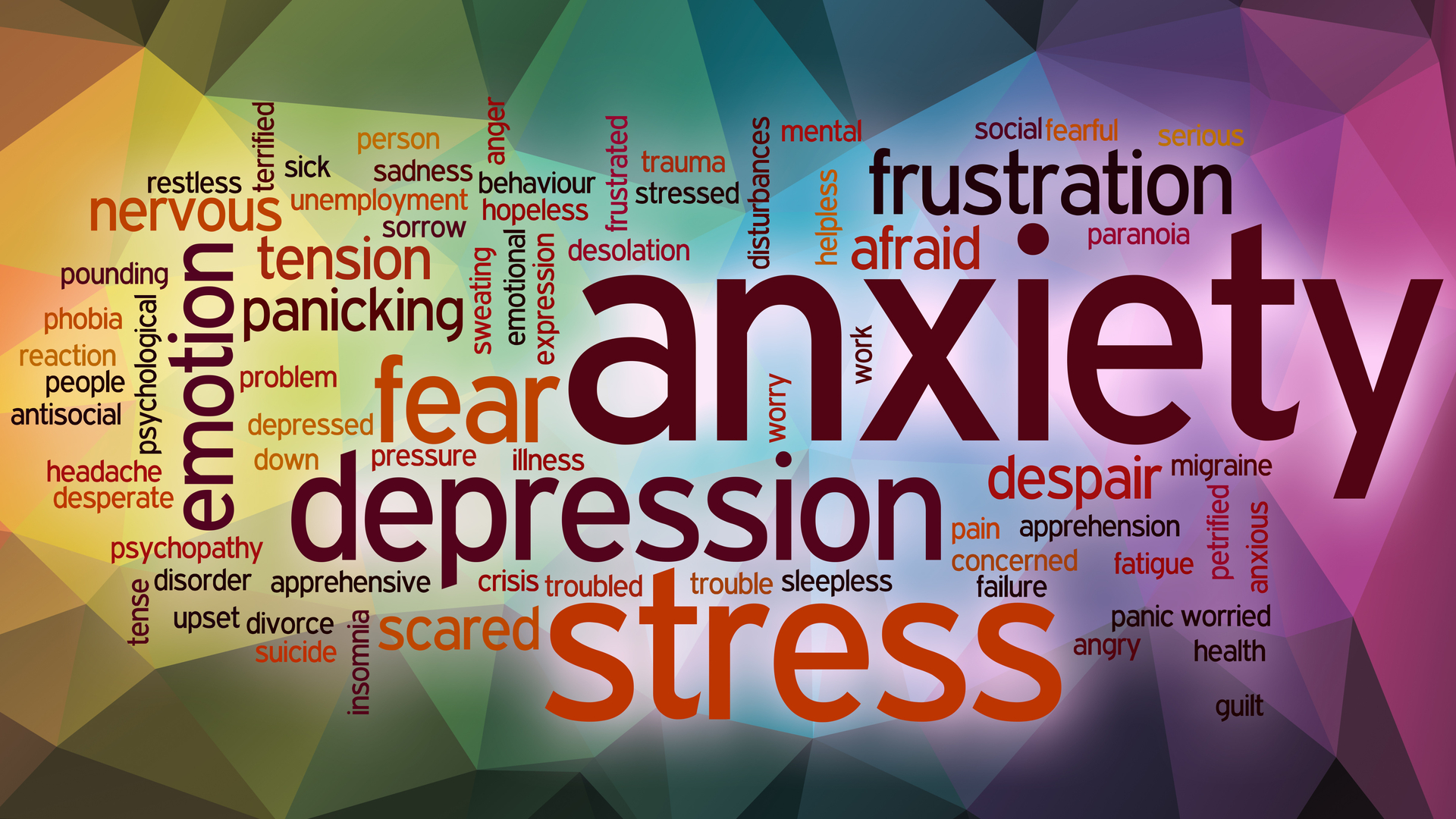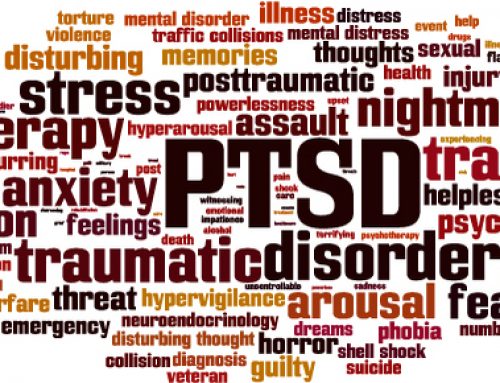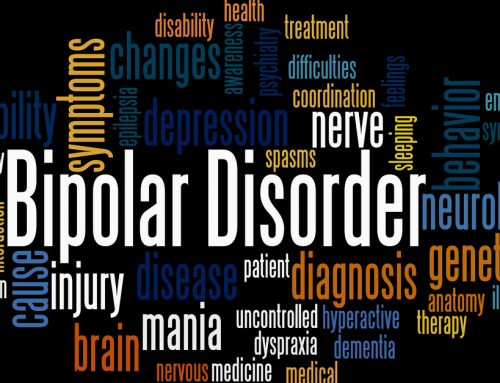If you are unable to work due to anxiety, call an experienced Anxiety Disability Lawyer with the Best A+ rating with the Better Business Bureau to win your SSD or SSI claim. When searching for a SSD or SSI Lawyer to win your disability case due to anxiety, inexperience cannot be tolerated. You need to find the best disability lawyer to win your Social Security Disability or SSI claim.
It is not uncommon to experience feelings of anxiety. Sometimes we feel nervous or we worry needlessly and excessively about life events and circumstances. Most of us, however, can overcome these feelings of anxiety and go about our daily routine. Some of us, however, are not so lucky.
Many people suffer uncontrollable fear and anxiety disproportionate to the actual situation. Some will suffer excessive sweating, suffocation sensation, hyperventilating, heart racing, confusion, and panic attacks. These symptoms and attacks can be triggered by a variety of thoughts, memories, observations, sounds, smells, crowds, people, past trauma, to name a few.
Some people experience overwhelming anxiety, nervousness, excessive worry, and fear, for no apparent reason. When severe, anxiety can interfere with our normal daily routine and or make it very difficult to keep a job due to the need for unscheduled work breaks and excessive absenteeism.
Get Early Professional Treatment for Disabling Anxiety
Anxiety can interfere with daily normal function or your ability to complete work activities. When this happens, you should seek help from a mental health professional. Early detection of anxiety can lead to more successful treatment. Likewise, early detection and proper treatment can help reduce anxiety and prevent it from advancing to disabling levels.
Bear in mind, a person with anxiety may actually be afraid to seek treatment for their anxiety. These people need help and encouragement from family and friends to obtain proper care from a mental health professional.
You, as a reader of this article, are likely to be the friend or family member of somebody who suffers anxiety and needs assistance from a mental health professional. The sufferer needs your help. Most likely, you are reading this article because you have recognized the anxiety sufferer or disabled person needs help. You can learn more about anxiety by visiting sites such as the Mayo Clinic site regarding anxiety, symptoms, and causes.
You need to take steps to help the sufferer get professional treatment. Start by calling your local health departments for assistance finding a local mental health clinic. The sufferer’s regular doctor may be able to refer the patient to an appropriate mental health professional. Additionally, if the person suffering anxiety cannot work or cannot seem to keep a job, call my office immediately for a Free Consultation and to apply for Social Security Disability or SSI benefits. You need consult with a Disability Lawyer experienced in Anxiety SSD and SSI disability cases.
Call an Anxiety Disability Lawyer to Win Your SSD or SSI Claim
If you cannot work due to disabling anxiety or excessive worry, call an experienced A+ rated Anxiety Disability Lawyer to win your SSD or SSI claim. Anxiety is just one of several disabling Mental Disorders that can qualify for Social Security Disability SSD or SSI benefits. Anxiety sufferers often also suffer from depression. You can read our blog article regarding Depression and Disability here.
Mental disability cases can be very difficult to prove. We don’t have the benefit of X-rays or MRI’s to prove a disabling impairment in a disability case with anxiety. There are no tests that can prove disability from anxiety. You only have your word, your treatment records, opinions from your treaters, possible school records, records of failed employment attempts, and statements from your family, friends, and past co-workers. Still, my office enjoys great success proving SSD and SSI Disability claims arising from severe anxiety.
Win your SSD or SSI Disability Claim by meeting an Anxiety Disorder Listing
You can win your disability case by proving you meet the requirements of an Anxiety Disorder Listing.
What is a “Listing”? There are many conditions or impairments that can cause work disability. In fact, the Social Security Administration keeps a List of such impairments which they refer to as “Listings.”
“Listings” usually have several requirements. If you meet the requisite requirements of a Listing, you meet the Listing. So, what if you meet a Listing? If your Anxiety Disability Lawyer can prove that you meet the Listing for Anxiety Disorders, you win your disability case.
How to Win Disability with an Anxiety Disorder Listing
There is an impairment Listing that Social Security uses to decide cases involving disability with anxiety. You can read Listing 12.06 for Anxiety and obsessive-compulsive disorders by visiting the Social Security website. In the event, the disabled person suffers from other mental disorders, you may wish to review other mental disorder Listings as well. Mental Listings.
With regard to disability from anxiety, Listing 12.06 for Anxiety disorders requires medical documentation of anxiety with at least 3 of the following conditions or symptoms:
- Restlessness;
- Easily fatigued;
- Difficulty Concentrating;
- Irritability;
- Muscle Tension;
- Sleep Disturbance;
Notably, Listing 12.06 also refers to panic disorder, agoraphobia, and obsessive-compulsive disorder. I will cover these conditions in greater detail in separate articles on my blog page. Suffice to say, however, panic disorder or agoraphobia Listing requirements include panic attacks, persistent concern or worry about future panic attacks, or disproportionate fear or anxiety about at least two different situations such as using public transportation, being in crowds, standing in line, being outside of the home, and being in open spaces, to name a few.
Obsessive-compulsive Listing requirements can include involuntary time consuming preoccupation with intrusive, unwanted thoughts or repetitive behaviors aimed at reducing anxiety.
We explained before that meeting an Impairment Listing is very difficult to do. Indeed, even if you can establish the above symptoms, the fight is not over. We must establish that you meet either the “B” or the “C” criteria in order to win your disability claim with anxiety.
How to Meet the “B” or “C” Criteria Necessary to Win Disability with Anxiety
In most anxiety disability cases, whether you win with an Anxiety Disorder Listing depends upon whether you can establish the “B” criteria. This is what the battle is over and this is where most cases will fail.
To establish the “B” criteria, you must have a certain level of limitation in certain areas of function. Social Security assesses limitation from least to worst as follows: No Limitation – Mild Limitation – Moderate Limitation – Marked Limitation – Extreme Limitation.
The only 2 levels of limitation severe enough to win with the Anxiety Listing are “Marked” and “Extreme.” “Mild” limitation or “Moderate” limitations are not enough to meet an Anxiety Disorder Listing.
To most people and even to doctors, “Moderate” sounds like a disabling degree of limitation. Consequently, doctors will often state “Moderate” limitations when they believe the patient is disabled from all work. To the contrary, however, Social Security describes “Moderate” limitation to mean a “fair” ability to function independently, appropriately, and effectively in a certain area on a sustained basis. This can cause problems when requesting opinions or disability letters from your mental health professionals. Doctors will mean to say you are disabled by saying “Moderate” limitations but Social Security interprets “Moderate” to mean not disabled.
Areas of Limitation under the “B” Criteria
When evaluating the “B” criteria, Social Security considers whether you have at least 2 “Marked” or 1 “Extreme” limitation in 4 designated areas. If you have at least 3 of the Anxiety Listing symptoms above and you have at least 2 “Marked” or 1 “Extreme” limitation in the following areas, you will satisfy the Anxiety Disability Listing 12.06 and you will win your claim. The areas of limitation include:
- Understand, remember, and apply information – This applies to one’s ability to learn, recall, and use information to work.
- Interact with others – This applies to the ability to relate to and work with the public, co-workers, and supervisors without excessive sensitivity, argumentativeness, or suspiciousness,
- Concentrate, persist, or maintain pace – This refers to your ability to ignore distractions and basically keep up your work routine and attendance,
- Adapt or manage oneself – Some examples include being able to regulate emotions, control behavior in the work setting, respond to demands, distinguish between acceptable and unacceptable work performance, maintain appropriate attire, be aware of normal work hazards, adapt to changes.
If our Anxiety Disability Lawyer can prove “Extreme” limitations in 1 of the above or 2 “Marked” limitations, we can meet the Anxiety Listing and win your claim.
Social Security Needs Accurate Assessments from Your Doctor to Meet an Anxiety Disorder Listing
Often, we hear your doctor say “you definitely cannot work.” Yet, they answer a disability questionnaire stating only “Moderate” limitations. Social Security thinks this means you can work. In other words, your own doctor who tells you to apply for disability may be the one who unintentionally and ultimately causes you to lose. Obviously, the doctors do not understand Social Security’s definition of “Moderate” limitations. We have to make sure that this does not happen. An experienced Anxiety Disability Lawyer can prevent these and other problems from adversely influencing SSA’s decision.
You Must Learn Whether Your Doctor will Provide Disability Opinion Letters or Answer Questionnaires
First you need to learn as soon as possible, preferably prior to beginning treatment, whether your mental health professionals will write disability opinion letters or answer disability questionnaires. The Social Security Administration expects to see these.
Some doctors will not provide opinion letters or answer disability questionnaires. Many doctors will say it is against their policy to do so. If you have one of these doctors or therapists, look for somebody else. It makes no sense that a doctor can treat you and even prescribe medications to you but somehow doesn’t know enough about your condition to indicate your degree of limitation. And, Social Security Judges expect to see opinion letters and responses to questionnaires from your doctors. If the Judge does not receive any such letters or completed questionnaires, the Judge may think it is because your own doctor believes you can work.
At my office, we encourage your doctors to provide their honest opinions regarding ability or inability to work. We have questionnaires specifically tailored to the areas of limitation examined by Social Security to help prove your claim. An experienced Anxiety Disability Lawyer can only do so much. If you have a doctor who will not provide honest disability opinions, you need to find another doctor.
If you do not meet the “B” criteria, please visit our Disability With a Mental Disorder page for an excerpt on how to meet the “C” criteria. While there, look at the common reasons why people lose Mental Disorder claims.
You Can Still win Disability with Anxiety Even if You Don’t Meet the Anxiety Listing
You can still win your SSD or SSI claim even if you do not meet an Anxiety Disability Listing. During the evaluation process, if you do not meet a Listing, you still go on to determine whether you can still perform work you performed within the last 15 years. If you can, you lose. If you can’t, you go onto the final step. Can you perform any work which exists in significant numbers? If so, you lose. If not, you win. Really, the bottom line is whether you can perform any work.
Anxiety patients often suffer physical impairments which often cause or make the anxiety worse. One can imagine how somebody with a heart condition will suffer anxiety as a result of their heart condition. Likewise, one can imagine how anxiety can worsen heart symptoms.
But anxiety alone can lead to work failure. People with severe anxiety often report that it is literally impossible for them to leave the house on certain days because of elevated anxiety. If this happens on a fairly regular basis, you will likely be unable to hold a job.
Unscheduled Work Breaks and Excessive Absenteeism Due To Anxiety Can Cause Persistent Work Failure and a Finding of Disability
When you go to a Social Security Disability hearing, there will be a Vocational Expert who testifies about the existence of various jobs. The Social Security Judge will ask the vocational expert to assume certain limitations the Judge believes you may have based upon your psychiatric and other records.
Experience tells us that if you cannot leave your house and have to be absent from work more than 2 times per month, month after month, the Vocation Expert will likely testify there is no work that you could perform. This is because you would not meet minimal attendance requirements for most jobs. You would not even be able to make it through your 90 day probationary work period and would be terminated. Likewise, the Vocational Expert will also testify that if your symptoms necessitate unscheduled work breaks totaling 2 hours or more out of an 8 hour work shift, there will be no work that you can perform.
SSA Will Consider a Combination of Impairments to Determine Disability
Even if you do not meet an Anxiety Listing, SSA will consider your level of anxiety and limitations in combination with other impairments. Many people who suffer anxiety also suffer from other mental and physical disorders. The combination of disorders can make it even more difficult to function at work. The best Anxiety Disability Lawyers use all of your mental and physical impairments to prove you are disabled.
What Evidence Do We Need to Prove Disability with Anxiety?
As previously indicated, there are no x-rays or MRI’s to prove Anxiety. Yet, SSA states they need objective medical evidence before they’ll find you disabled due to Anxiety. Evidence deemed acceptable to SSA when deciding SSD and SSI Disability cases based upon Anxiety Disorders may include:
- Objective medical evidence from acceptable medical sources – must establish that you have a medically determinable mental disorder.
- Evidence from Medical Sources – includes reported symptoms, medical and psychiatric history, results of physical and psychiatric exams, measures of adaptive functioning,
- Psychological testing,
- Diagnosis,
- Types of Medications and benefits,
- Medication side effects,
- Observations of your ability to function during exams and therapy,
- Information about sensory, motor, or speech abnormalities, cultural background, language, or customs that may affect a mental evaluation,
- Expected duration of your signs and symptoms and their effects upon functioning currently and in the future,
Non-medical Sources of Evidence to Help Prove Disabling Anxiety
In addition to medical and psychiatric records, Social Security will also accept and review other non-medical evidence when determining disability with anxiety including:
- Evidence from you and people who know you – family members, caretakers, friends, neighbors, clergy, case managers, social workers, shelter staff, community support workers, and anybody who sees you during treatment and during your day to day function at home,
- School Records.
- Records from vocational and work programs,
- Medical records of mental disorder over long periods,
- Statements from those who know you such as family and friends, clergy, neighbors, co-workers, cases managers, who are familiar with your mental disorder over a long period of time,
- Evidence of ability or inability to function in unfamiliar situations or supportive situations,
- Evidence of necessary support – Family members who administer you medication, remind you to eat, bathe, pay bills,
- Records of Special Education,
- Participation and success or lack of success in sheltered work programs,
- Participation in assisted or semi-assisted living,
- Need for at home supervision,
The above are just examples and are not all-inclusive.
Get Statements from Prior Co-workers regarding Work Failure
Sometimes, when people have to quit their job or are fired for inability to perform, they keep in touch with their co-workers. These prior co-workers can be a valuable source of evidence in a disability claim involving overwhelming anxiety. Prior co-workers can write statements as to their observations of your work difficulty and failure. They can attest to how you needed to take unscheduled work breaks and how you did not adequately perform.
Why Call a Top A+ Rated Disability Lawyer at Social Security Professionals to Win Your SSD or SSI Disabilty Claim?
When your SSD or SSI benefits are at stake, you need to call the best Anxiety Disability Lawyer with the highest A+ rating from the Better Business Bureau to win your disability case. Social Security Professionals only uses real disability lawyers with decades of experience. We do not use young and inexperienced attorneys like other disability firms. Nor do we use non-attorney disability advocates who have never completed law school or passed a bar exam.
With some busy disability firms, you will speak with an attorney until you sign the fee agreement. After that, you will have a difficult time speaking with a lawyer. You will have a difficult time getting past their secretary and you may go through several different lawyers before you are finally able to speak to one at the day of your hearing. This is not the way to win a disability case.
From application to appeal, when you call our Social Security Professionals for a Free Consultation, you will not be shuffled off to a secretary or paralegal who has never seen a disability hearing before. You will speak with a real disability lawyer each and every time you call.
Call today for a Free Consultation for yourself, a friend, or family member to speak with an attorney regarding work disability from anxiety. You need no money to speak with a disability lawyer at our office since we handle SSD and SSI cases on a percentage fee basis only if you win. There is absolutely no fee if you lose. Consequently, you need no money to hire us.
Call Disability Lawyer Donald Peters for a Free Consultation. (248) 549-3485.

Call A+ Rated Disability Lawyer Donald Peters for a Free Consultation about your SSD or SSI case arising out of Anxiety. Free Consultation. (248) 549-3485
.






